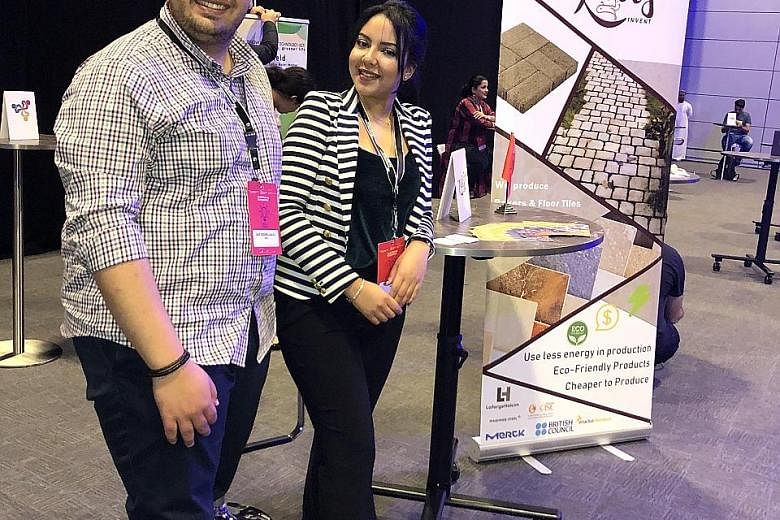MOROCCO • Saif Eddine Laalej is only 20 years old, but he has developed a way to turn discarded plastic into useful building material.
The student of the National School of Business and Management of Tangier, in the north of Morocco, has designed an eco-friendly paving stone in the form of traditional Moroccan Zellige tiles.
The paving stone is made from plastic waste, such as bottles, containers and even bottle tops.
The end product is a mix of salvaged plastic and other components - notably cement and sand.
This eco-friendly paving stone, or Paveco, offers the same advantage as concrete but costs less. These were the features Mr Laalej and his partner Houda Mirouche were aiming for when they co-founded their start-up, Zelij Invent.
The pair have been developing their innovative product since 2016, thanks to a student social entrepreneurship and sustainable development programme run bynon-governmental organisation Enactus.
"(Our design) represents a proven solution for the recycling of plastic, and it perfectly conforms to current industry standards for flooring products in terms of durability and incombustibility," Mr Laalej said.
The idea behind Zelij Invent came while they were watching a televised debate in 2016. It was about the launch of an initiative to fight the accumulation of plastic bags in the environment.
One of the speakers said plastic was underused as a construction material. In addition to being lightweight and malleable, plastic is waterproof, resists corrosion and wear, does not rot and cannot conduct electricity.
While Zelij Invent's workshop is currently only producing prototypes and samples, the start-up estimates its potential for recycling plastic at 2,520 metric tonnes per month, given that 35kg of plastic is used for each square metre of paving stone.


